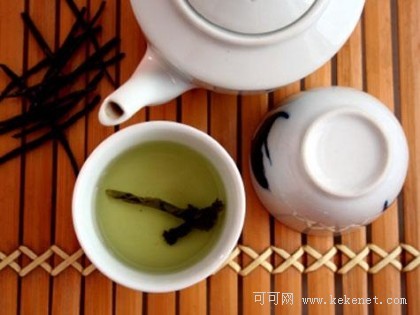
Green Tea
Why it’s a cold/flu fighter: Green tea leaves contain antioxidants that can help to boost immune function. A recent study published in the Journal of the American College of Nutrition showed that subjects taking a special preparation of green tea as a capsule experienced 23% less bouts of colds and flu overall and 36% fewer sick days. Their immune systems also produced more cells that fought off illness-causing bacteria and viruses.
What does this mean for you? Sip on green tea any chance you get. However, keep in mind that green tea does contain caffeine—20 to 50 mg per 8 oz.-cup, depending on how long you steep the tea. (In comparison, a cup of coffee contains 100 to 120 mg per 8 oz.-cup.) For adults, a moderate amount of caffeine is 200 to 300 mg per day; more can be associated with side effects, which include restlessness and difficulty sleeping. For this reason, you should closely monitor how much green tea kids have. One cup per day for a gradeschooler or preschooler is fine (just don’t steep the green tea too long for young kids). Or just give them the decaf variety, especially if they’re drinking it when they have the cold or flu.
绿茶
绿茶含有抗氧化剂,可以帮助提高免疫功能。最近一项医学研究表明:服用某种特制绿茶胶囊的受试者普通 感冒和流感的发病率降低23%,病程也缩短了36%。同时他们体内产生更多免疫细胞,可以更有效地对抗细菌和病毒。
对我们有什么启发呢?尽可能喝点绿茶。不过需要注意的是,绿茶含有咖啡因。一杯绿茶中含有20-50mg咖啡因,当然泡的越久含量越高。相比之下,同样的一杯咖啡中含有100-120mg咖啡因。成年人每天摄入200- 300mg咖啡因是比较适量的,再多就会引起激动、失眠等副作用。所以,对喝茶的孩子应该特别关注。学龄前儿童或小学生每天喝一杯绿茶有益无害。或者在他们感冒的时候,给他们一杯低咖啡因的绿茶也是个好主意
。


















